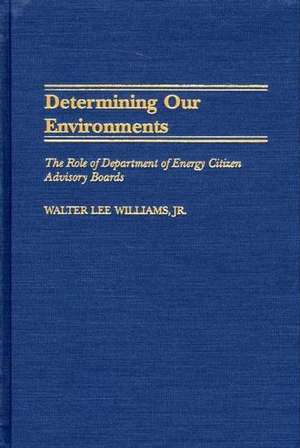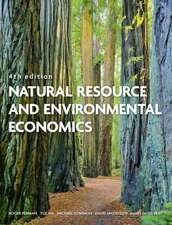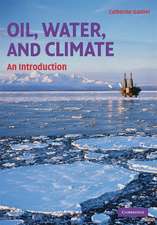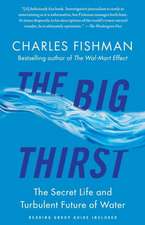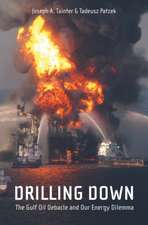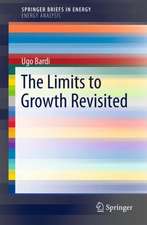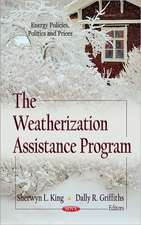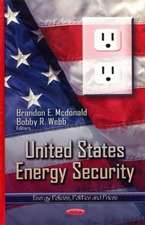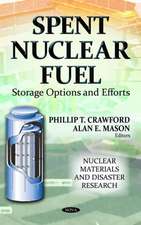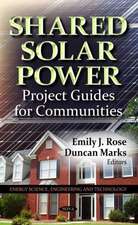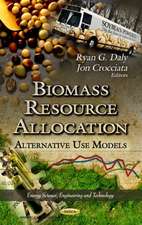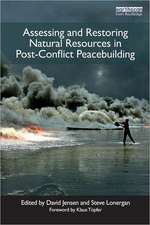Determining Our Environments: The Role of Department of Energy Citizen Advisory Boards
Autor Walter L. Williamsen Limba Engleză Hardback – 29 iun 2002 – vârsta până la 17 ani
Preț: 345.74 lei
Preț vechi: 556.31 lei
-38% Nou
Puncte Express: 519
Preț estimativ în valută:
66.16€ • 71.85$ • 55.58£
66.16€ • 71.85$ • 55.58£
Carte tipărită la comandă
Livrare economică 22 aprilie-06 mai
Preluare comenzi: 021 569.72.76
Specificații
ISBN-13: 9780275972073
ISBN-10: 0275972070
Pagini: 190
Dimensiuni: 156 x 235 x 19 mm
Greutate: 0.45 kg
Ediția:New.
Editura: Bloomsbury Publishing
Colecția Praeger
Locul publicării:New York, United States
ISBN-10: 0275972070
Pagini: 190
Dimensiuni: 156 x 235 x 19 mm
Greutate: 0.45 kg
Ediția:New.
Editura: Bloomsbury Publishing
Colecția Praeger
Locul publicării:New York, United States
Notă biografică
WALTER LEE WILLIAMS, JR. is an independent scholar who has worked as an adjunct professor of political science at Pellissippi State Technical Community College. Dr. Williams' research interests include public and environmental policy and public administration.
Cuprins
The Changing Regulatory ProcessFrom Production to Cleanup: A History of the Fernald FacilityImplementing the Model: The Creation of the Fernald Site Specific Advisory BoardThe Effect of the Fernald SSAB: From Conflict to CooperationThe Results of a Survey Involving DOE's Site Specific Advisory BoardsThe Eternal Quest for Public Participation: Assessing the Fernald SSAB ExperienceAppendicesBibliographyIndex
